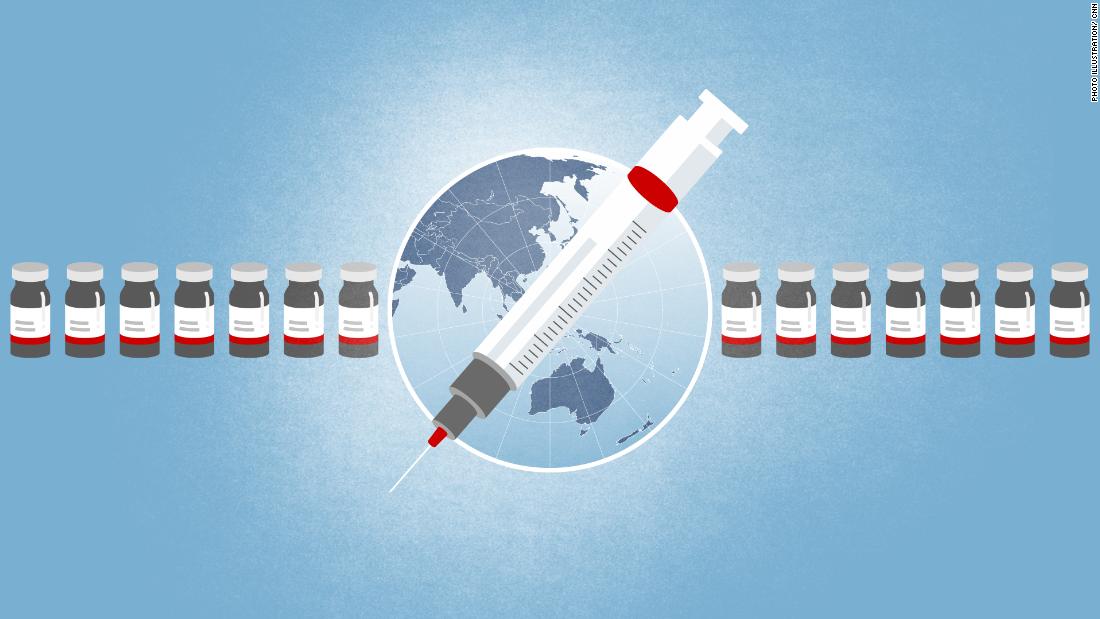
An official with China's drug regulator, Zeng Yixin, said the vaccine's clinical trials are still ongoing, and its manufacturer will be required to submit follow-up data to authorities.
Among those who have already received the vaccine, fewer than 0.1% developed a light fever, and about two people per million developed "relative serious adverse reactions" such as allergies, according to Zeng.The timeline: The country has already administered 4.5 million doses under its emergency use program, which included frontline workers such as health care workers and customs officers.The doses are expected to arrive by March and should cover 65% of the population.
The vaccines will be funded by the government and given to priority groups first, including medical workers, military members, the elderly, those with severe diseases, and essential personnel.Japan speeds up process as cases surgeJapan has not yet approved any vaccine, and has faced criticism over its slowness to act as cases reach new daily highs, prompting leaders to declare a state of emergency for the capital Tokyo in January.The vaccines: Pfizer applied for approval of its vaccine in mid-December and has agreed to supply Japan with 120 million doses, enough for 60 million people, according to public broadcaster NHK.Other major vaccine makers including Oxford-AstraZeneca, Moderna, and Novavax have also signed deals to provide Japan hundreds of millions of doses in total.Local production: Japanese companies have received funding to manufacture some of the vaccines locally.He added that they are working to move up the Pfizer vaccine, to potentially the second quarter.
With enough doses secured for 44 million people, the government is aiming to vaccinate 80% of its population of 51 million people by November to reach herd immunity.Local manufacturing: The AstraZeneca vaccine will be produced in South Korea by local company SK BioScience, according to the Ministry of Food and Drug Safety.All Singaporeans are expected to be vaccinated by the end of 2021, free of charge, according to the Ministry of Health.
The country is still evaluating other candidates, including China's Sinovac vaccine.Indonesia has already received at least 3 million doses of the Sinovac vaccine.The country also secured deals with AstraZeneca and Novavax to secure 50 million doses from each company, but no details were released on when the shipments will arrive.Thailand has signed a deal with AstraZeneca to import 26 million doses of the vaccine, and to set up a local manufacturing facility to produce the vaccine in Thailand.The locally produced shots will be provided to people in Thailand as well as across Southeast Asia, with distribution expected to begin in May, according to Thai authorities.
The country will also receive 2 million doses of the Sinovac vaccine in three batches, delivered in February, March and April.The Philippines has not approved a vaccine yet -- but several of the president's military guards received an unnamed and unauthorized vaccine as early as September.The country is also working to secure deals with American companies Moderna and Arcturus, while regulators review Pfizer's vaccine for emergency-use authorization.Vietnam has struck a deal to receive 30 million doses from AstraZeneca to be delivered throughout the year, while the government continues negotiations with other vaccine makers, state-run news reported on January 4.Cambodia has secured doses for 3.2 million people under the COVAX initiative, but no details have been released on when those will arrive.The country has signed agreements to secure 1.5 million doses of the Pfizer-BioNTech vaccine, 5 million doses of the Janssen vaccine, 7.6 million doses of the Oxford-AstraZeneca vaccine, and 10.72 million doses of the Novavax vaccine.
The country will also secure enough vaccines to cover Pacific Islands including Samoa, Tuvalu, Tokelau, Niue, and the Cook Islands, according to CNN affiliate Radio New Zealand.
Australia has also signed four deals: 10 million doses of the Pfizer-BioNTech vaccine, 53.8 million doses of the Oxford-AstraZeneca vaccine, 51 million doses of the Novavax vaccine, and 25 million doses under COVAX.Australia's Pfizer doses will be manufactured in the US and Europe, the Oxford-AstraZeneca vaccine will be imported then manufactured in Australia by a domestic company, and Novavax doses will come from European production sites.Australia expects to start administering the first dose in mid-to-late February to priority groups, including quarantine and border workers, frontline healthcare workers, and residents in aged and disability care.By the end of March, four million people should have been vaccinated, according to Prime Minister Scott Morrison.The Pfizer-BioNTech vaccine is expected to approved by Australian regulators by the end of January, Morrison said.